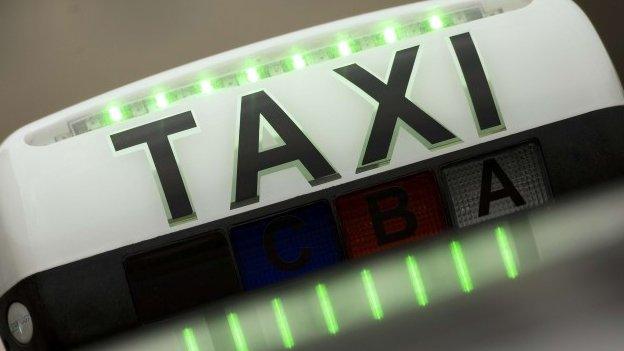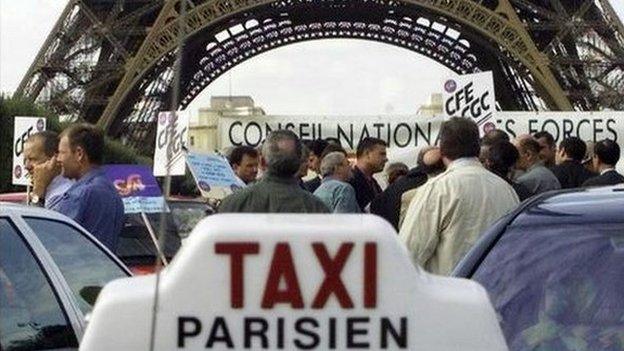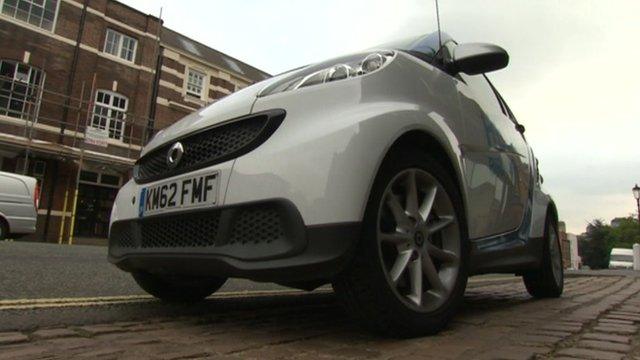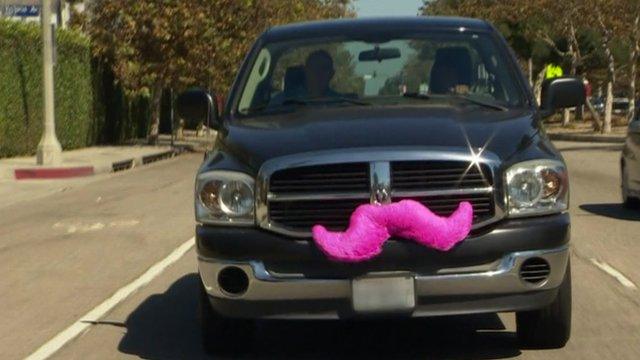France mulls car-sharing GPS app ban
- Published

French taxis are at war with private transport providers
Private car hire services in France face a ban on the GPS-enabled apps that allow people to find available drivers.
The government is desperate to placate taxi unions which are increasingly frustrated by private lift-sharing schemes.
It has drawn up a set of recommendations which include banning such services displaying maps of the location of available cars.
One car-sharing start-up said that the recommendation was "bizarre".
"This is a big problem for us," said Pierre-Dimitri Gore-Coty, a regional general manager for car-sharing firm Uber.
"It is cutting one of the features of the app which is about making it simple to order a private car."
Firms such as Uber, Snapcab and others are increasingly challenging the traditional licensed cab market.
They connect passengers with private cars for hire or with people wanting to offer lift-sharing.
The services use apps that allow potential passengers to see available drivers in their vicinity.
Paris gridlock

Taxi drivers have staged a series of strikes in protest at how alternative car-sharing schemes are undermining their businesses
The government report, which so far is non-binding, also recommends that taxi drivers should be able to use the very GPS-enabled apps to which it is suggesting private firms should not have access.
"This is all about protecting the taxi industry and is not serving consumers in any way," said Mr Gore-Coty.
Parisian taxi drivers have proved a powerful lobby group in France.
Last year, taxi unions convinced the government to adopt a mandatory 15 minutes waiting period for private hire vehicles, something that was recently overturned by the Supreme Court following a ruling from the Competition authority which said the decree was anti-competitive.
In response, taxi drivers brought gridlock to the capital in February with protests over the decision to overturn the decree.
Future transport
Taxi drivers are also angry that services such as Uber, SnapCar and LeCab don't face the same regulations as taxis and that drivers do not always need to pay a fee for a licence.
Another recommendation from the report suggests putting a freeze on issuing any new licences for an undetermined amount of time.
Countries around the world are struggling to know how to regulate the glut of private car hire schemes that have recently emerged.
But there is no doubt that such services are growing.
Paris and London represent the two biggest markets for Uber outside the US, said Mr Gore-Coty.
It recently launched another service UberPop in Paris, which connects people who need a lift with ordinary people who have had a driver's licence for more than three years.
"We're here to stay," he told the BBC.
"Taxi unions may want to hold on to the monopoly that they have enjoyed for decades but this is about how the city transport of tomorrow should look."
- Published8 October 2013

- Published8 October 2013
